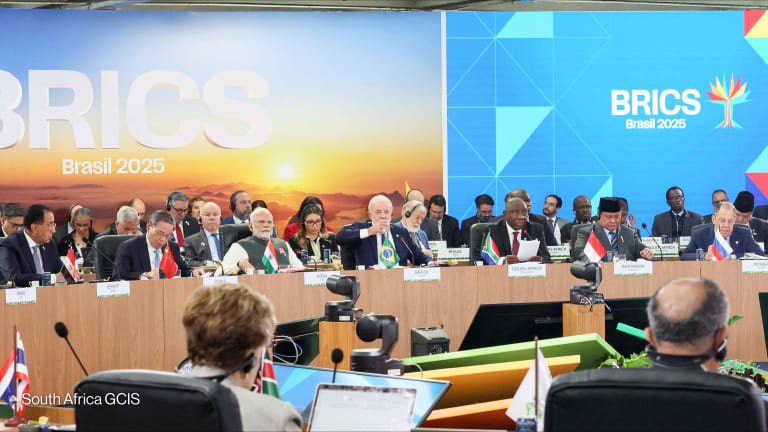
There appears to be some misunderstanding on what obligation donors have under the Paris Declaration on Aid Effectiveness and the Accra Agenda for Action, particularly the emphasis on country-led development and the use of country systems through which resources are to be channeled.
On country-led development, the Accra Agenda for Action stipulates that country ownership is the key. It states that developing country governments should take stronger leadership of their own development policies and engage with their parliaments and citizens in shaping those policies. More importantly, the agenda is explicit in stating that without robust capacity – strong institutions, systems and local expertise – developing countries cannot fully own and manage their development processes.
The Paris declaration stipulates that partner countries commit to necessary reforms to ensure that national systems, institutions and procedures for managing aid and other development resources are effective, accountable and transparent. Further, developing countries, for their part, must commit to undertake reforms, such as public management reform, necessary to the success of sustainable capacity-building processes.
Beyond these particular aspirational and visionary pronouncements, it is important to bring some clarity to this debate. First, what do we mean by country-led development? I would argue that inclusive, society-wide ownership of the development process is fundamental to the success of sustainable outcomes. This entails inclusive institution building at all levels of society – economic, political and social. This approach relies on institution building at the national, regional and local government levels and includes civil society organizations such as producer associations, community development organizations, cooperatives, boards of directors of local health clinics, school boards, to name a few examples.
Therefore, an important criterion in assessing country-led strategies is to ascertain how deep and broad inclusive institutions — both governmental and self-governing – are in order to ensure wide societal ownership of the processes. One good contribution was the criteria embodied in a widely circulated draft reform bill written by Rep. Howard Berman (D-Calif.) as chair of the U.S. House of Representatives’ Foreign Affairs Committee. That bill specified criteria aligned with the above stipulations, which would make country-led development a reality, rather than a mere aspiration.
While most modern nation-states have gone through the creation of institutions at all levels of society, most developing countries have not. Citizens in many of developing countries have not had the opportunity to participate in what is termed constituting processes — the creation of institutions at all levels of society. It is a highly participatory process where common values and rules are identified and agreed upon and institutions that reflect fundamental societal consensus are created. This process allows members of a group to include their cultural and traditional values in a governing conflict. The process of institution building at all levels of society transcends the divisive nature of localism or communalism, whether ethnic or sectarian. Institutions reflect the accepted rules of the game, clearly defining individual rights and responsibilities within the broader community of interests.
Does country-led development mean government- or elite-led, or should it mean broad societal ownership of the development process?
It should be the latter, and it should reflect inclusive, social, economic and political institutions which are fundamental to sustainable outcomes. It is within this context that certain elements of USAID Forward and other donor initiatives that emphasize the use of country systems should be evaluated. Will direct investment in weak institutions and organizations that are not yet capable of effectively or transparently utilizing these funds enhance effectiveness and accountability? We know the answer is no. Just as importantly, does the use of country systems and country-led development reflect broad societal ownership of the systems and institutions? If the answer is no, the outcomes will not be effective, accountable or sustainable.
Weak and noninclusive social, economic and political institutions are the major obstacles to development. Donors all too often focus their engagement with development partners on sector strategies, giving short shrift to inclusive institution building. Priority should be given to the latter in order to enhance the sustainability of the former. Therefore, donors should have an expansive definition of what constitutes country systems beyond national government systems which may be disconnected from most elements of society. The focus should be on the breadth and depth of systems of governance and institutions of governance that are locally rooted, which, in turn, are tied to regional and national systems. This is the principle of self-rule through shared rule.
More on country systems:
Read more development aid news online, and subscribe to The Development Newswire to receive top international development headlines from the world’s leading donors, news sources and opinion leaders – emailed to you FREE every business day.








